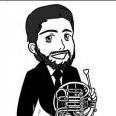Leaderboard
Popular Content
Showing content with the highest reputation on 08/06/2019 in all areas
-

PRC395 - A Silent Star (Phantasy Star 2)
HoboKa and one other reacted to Silverpool64 for a topic
I just want to repeat TheVideoGamer and say thank you HoboKa and Bundeslang for running these compos. Even though I don't enter many of them, they are a great source for practicing my music skills. I hope many more entries come your way! Edit: Entry Submitted!2 points -
Entry submitted! Sorry it took me a while on this one; it took a while to figure out what I wanted to do here.2 points
-

MnP 104: Sonic Lost World - Tropical Coast Act 1
TheVideoGamer reacted to HoboKa for a topic
2 day ext. Deadline: August 10th Vote Ends: August 12th1 point -

Guitar Theory tips?
JayJayeeeeee reacted to JohnStacy for a topic
The answer to this question changes a bit depending on the genre. However, a thing I've found that simplifies the whole thing to a good starting point is to emphasize chord tones on strong beats, and you can really do whatever you want otherwise. For example, if you have a C chord, you could play chord tones on the downbeats like: C E G C G E C Then on the upbeats add some notes a step or so away: C F E Ab G B C D E Db C F is a half step above E, Ab is a half step above G, B is a half step below C, D is a whole step below E, and Db is a half step above C. By just thinking about where you put your chord tones in the lines relative to strong beats, the scale choice doesn't matter as much. I practice this by playing a solo of only chord tones on downbeats to get familiar with the progression, then practice adding other notes between to fill in the gaps. I hope this helps!1 point -

In defense of music theory
zykO reacted to BloomingLate for a topic
Thanks for sharing your thoughts John. Imagine the frustration of a freshly starting musician who first encounters this clash of opinions. Someone new to the field likely has no opinion on the importance of music theory yet. He runs into it and seeks to understand it, but then comes across all these different people (including teachers) who have a very strong stance on it in either extreme. He may then adopt such a person's opinion as his own, without really having weighed all the arguments. This certainly could have happened to me. When it comes to the debate Is music theory necessary? I would first like to ask: necessary for what? And of course it would help to define what we mean by music theory. You seem to go with music theory as analysis, but then also as form/structure. When I started learning about music and working through musictheory.net my understanding of music theory was that it provides the basic building blocks of music (note lengths, rests, keys, chords etc.). You could draw the analogy with the difference between analyzing a painting by Picasso and learning the names of different colors, introduction to materials and how to set up your canvas. So with my definition, I would say the theory is fundamental. As analysis I would find it more of an advanced tool that is helpful to achieve more advance purposes. But in terms of necessity? We can agree on the fact that people can play music and write music without necessarily having the vocabulary to go with what they're doing. In the same way, people can draw nice pictures or make good photographs without having the vocabulary or insight into color and composition theory, or aesthetics. I do think that someone who wants to be serious about his craft would do well to immerse himself in the principles, theories and even "rules" that come with it in order to create more effectively and to more consistently "nail it" with his creative endeavors. Knowing what you're doing is generally helpful in every area of life. Personally, I'm very analytically oriented and I like to have a grasp of basics, definitions, principles and structures. My teacher will teach me some music theory if I ask for it and if it is relevant to what I'm trying to do, but for the most part she seems to believe that my creativity will be stifled if we get too much into forms and all that. I feel kind of shut down by that kind of attitude. She fears that I will take too much of a mathematical approach and end up "programming" music, rather than writing it. I don't think that's what I'd do at all. I just want to understand what's going on and use specific existing forms as stepping stones to more original music. I'm doing something now, but without more direction I'll likely be stuck doing the same thing over an over. I want to explore the field of music and see what is out there and what I can learn from it. That doesn't have to mean I'll copy everything and lose originality (if that even exists anymore). Lastly, I think music theory in general suffers from a bad reputation as being unpractical, which may explain its de-emphasis in a school setting and the low expectations teachers have from their students. If it is not meaningfully connected to something tangible (as John described with his guitar class) it will stay in the unpractical. And if unpractical, why bother with it? It probably also doesn't help when a teacher is not a composer/musician himself/herself. I'm trying to work my way through Paul Hindemith's works on composition (part 1 and 2). In the introduction he laments the state of music theory education and names the lack of composer-teachers as part of the problem. If the teacher is not immersed in the craft himself, how is he expected to meaningfully transmit the knowledge to others? Unfortunately for music theory, it does tend to get a little dry and technical, even a little esoteric when you get to things like harmonics and get the math and physics involved. I find it not as accessible as other subjects, though I imagine you could get esoteric with color theory too if you bring in the frequencies of colors 0_0;1 point -

PRC395 - A Silent Star (Phantasy Star 2)
TheVideoGamer reacted to HoboKa for a topic
Thanks dood. Submitted my BONUS boner. It's a bit short. But I actually put some effort in. Besides, it's not size that matters. It's how you use it.1 point -
You missed my point, but I definitely see how you could. I was giving the example of *a* song. This is to contrast the idea that a song that is just chorus chorus chorus chorus chorus chorus verse chorus chorus chorus chorus chorus intro wouldn't work as well. Makes sense means that it is logical and follows a system that is consistent with both itself and other songs in the same style. I just threw an example and maybe wasn't as clear with what I meant as I could be. You nailed it, actually.1 point
-

In defense of music theory
zykO reacted to Phonetic Hero for a topic
The most succinct way I've ever heard it put is that music theory is DEscriptive, not PREscriptive, and it's stuck with me ever since (thanks Adam Neely!)1 point -
Yup, you got it exactly right - Music Theory is the language you can use to speak to different people about the same song. It's more effective to talk about the V-I cadence that occurs at bar 48 signalling the transition into the new C section of the piece than it is to say "The thing that happens about two minutes into the song sounds cool". What you do with that knowledge is up to you, but now you can accurately describe what you're hearing in a concise way. It's very useful, like that. You don't NEED it to compose music, but it sure does help. You don't NEED it to play music, but boy does it help! Lovely read, I encourage more people to give it a look over before settling on an opinion on Music Theory.1 point


